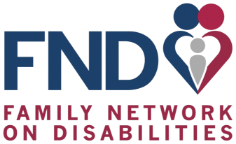INformation Hub
TRANSITION: Post-secondary Education/Training Programs Resources
TRANSITION: Post-secondary Education/Training Programs Resources
Scholarships for Youth with Disabilities
This list of available scholarships includes the funder names, descriptions, and contact information for students to explore financing for their higher educations.
Assistive Technology that Supports Independent Living for Young Adults with Disabilities
There is a wide range of assistive technology (AT) that can be used to support young adults with disabilities that want to gain independence and live on their own.
NCWD/Youth Video Series for Youth Explores Postsecondary Options
NCWD/Youth’s Youth Action Council on Transition (YouthACT) produced the “Hitting the Open Road” video series for youth. These short videos are based on the publication, written for youth and by youth on exploring options as youth prepare to transition out of high school.
PEAT Talks: Webinar Available on Expanding Accessibility Awareness in Higher Ed
This Partnership on Employment Accessible Technology (PEAT) webinar features three Accessibility Officers at top tech companies who share how they are working with industry, academia, and advocacy groups to expand the quality and quantity of undergraduate programs that teach the fundamentals of accessibility. The team explains how technology companies dedicated to accessibility are tasked to prepare designers, engineers, and researchers to think and build inclusive technology for postsecondary education.
How ESSA and IDEA Can Support College and Career Readiness for Students with Disabilities
ESSA provides states with the opportunity to support college and career readiness for all students, including students with disabilities. This brief explores how states can leverage ESSA and Individuals with Disabilities Education Act (IDEA) to promote college and career readiness for students with disabilities. It provides guidance to state leaders on the connections between ESSA and IDEA. It explains how to better support college and career readiness for students with disabilities through high expectations and access to the general curriculum, a well-rounded education, career pathways and transition planning, personalized and competency-based learning, subgroup accountability, and alignment across policies and programs.
Making My Way Through College
This guide is for any student pursuing a degree or other type of credential (e.g., certification, license) at a two-year or four-year community college, college, or university. It provides information on a variety of topics relevant to navigating the college experience for students with disabilities or those who think they may have a disability.
AFC’S Guide to College for Students with Disabilities
This guide from Advocates for Children of New York provides information, including resources, on the application process, financial aid, college services, and resources for support as youth prepare to go to college.
Tips and Technology for Managing Time, Focus, and Sleep in College
The Center on Technology and Disability has this guide to provide tips on managing college life.
Dual Enrollment Programs
This intervention report from What Works Clearinghouse presents findings from a systematic review of dual enrollment programs.
Getting Started: Managing Time and Staying Focused in College with the Help of Assistive Technology
This Center on Technology and Disability article explores how combining healthy study habits with technology can help a college student to focus and manage their time. Assistive technology that can help support motivation, minimize distractions, improve time awareness, and address procrastination is discussed. It also addresses setting goals, developing good study habits, incorporating technology tools, and getting enough sleep at college.
NCCSD Research Briefs
Two research briefs from national Center for College Students with Disabilities: “Campus Climate and Students with Disabilities” (available as a doc and pdf) and “National Databases with Information on College Students with Disabilities” (available as a doc and pdf, and with an mp3 audio version of the accompanying tables).
A Transition Guide to Postsecondary Education and Employment for Students and Youth with Disabilities
This transition guide from OSERS assists families and their students and youth with disabilities in developing and pursuing their goals for adult life. The guide addresses transition planning opportunities and programs; transition services and requirements; education and employment options after secondary school; and supporting decisions made by students and youth with disabilities.
Mental Health on College Campuses: Investments, Accommodations Needed to Address Student Needs
The National Council on Disability offers this report that examines and assesses the status of college mental health services and policies in the United States. The report documents the challenges, best practices, and emerging trends of supporting college students with mental health disabilities. Recommendations in the report address law and policy reform and best practices for colleges to provide increased access to services, increased training for staff and faculty, anti-stigma activities and outreach, student engagement, and integrated services.
Landmark College’s Guide to Assessing College Readiness
This publication aims to help parents assess college readiness in their college-bound children with learning disabilities or AD/HD. An assessment of five essential foundations that are critical for students with learning disabilities or AD/HD to succeed in a traditional higher education setting is followed by suggestions for discussion about the results.
Transitioning to College with a Disability
This short video from The Disability Services Office at NC State University addresses students who might believe their disability is an obstacle to succeeding at college. The five minute closed captioned video explains a variety of topics including how accommodations differ at college compared to high school and describes how one discloses a disability at the college level.
SOURCE ARTICLE: Center for Parent Information & Resources
Give us a call at (727) 523-1130 or (800) 825-5736 or request a callback by clicking below.
311 South Missouri Ave, Clearwater, FL 33756
(727) 523-1130
(800) 825-5736

